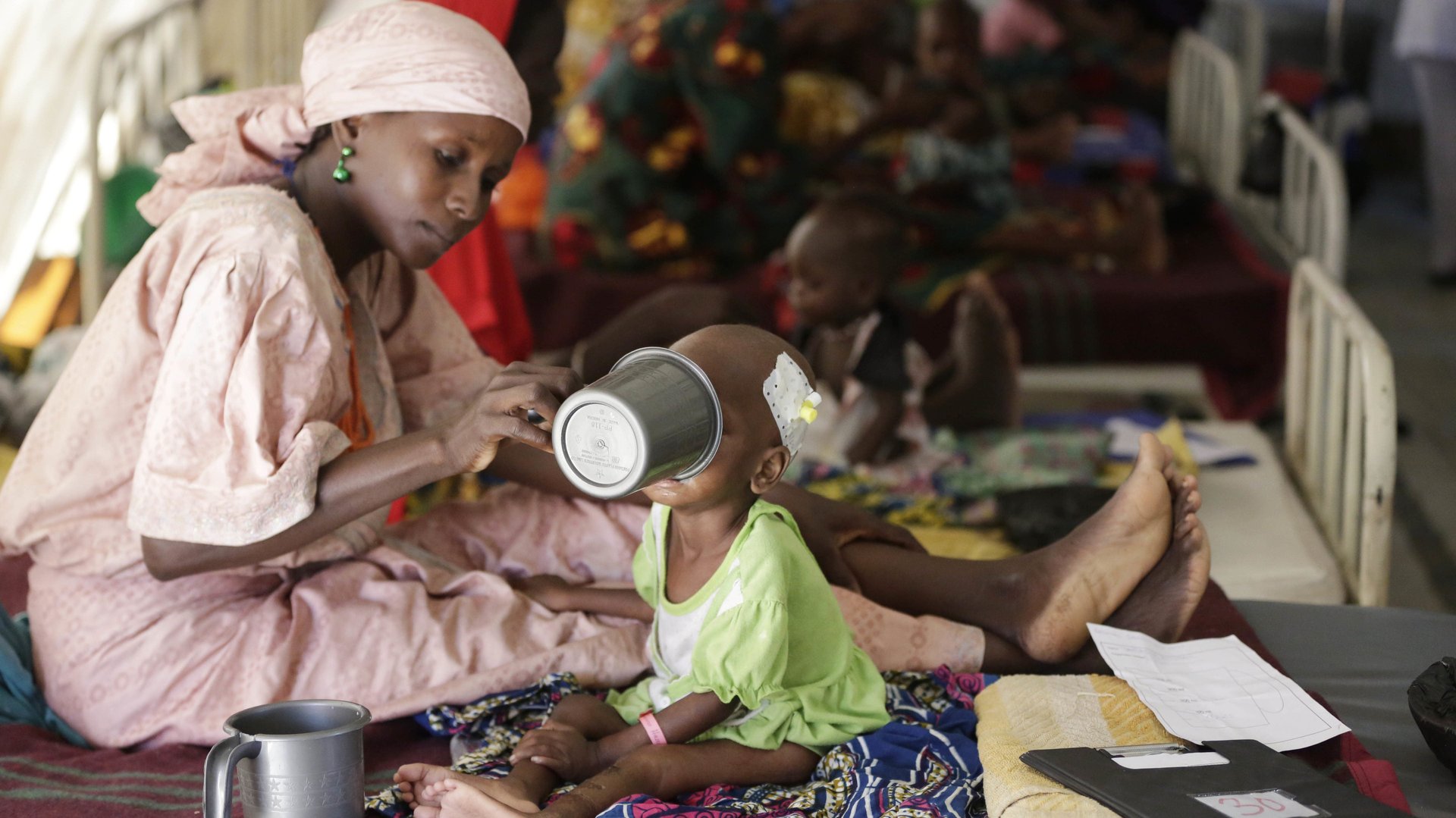Nearly a million children are victims of a severe food crisis in the Lake Chad region
Boko Haram’s insurgency in and around the Lake Chad region has seen thousands killed and millions more displaced. Now, the Norwegian Refugee Council (NRC) is shining a light on another set of victims: around 800,000 children under the age five who are “severely malnourished.”


Boko Haram’s insurgency in and around the Lake Chad region has seen thousands killed and millions more displaced. Now, the Norwegian Refugee Council (NRC) is shining a light on another set of victims: around 800,000 children under the age five who are “severely malnourished.”
One of the many costs of the militant sect’s insurgency has been the inability of local farmers to grow food—to feed or sell to earn a living. As a result, a severe shortage has broken out in the region with 50,000 people in Nigeria’s troubled northeast now “in famine-like conditions.” Help has been largely slow to come. Of the $2.2 billion needed to address “the urgent humanitarian appeals,” less than half has been donated. While donor nations have delivered nearly half a billion dollars, the “pledges just did not match the actual needs,” NRC said in a statement. It also said that, without the additional funding, it will be unable “to avert a massive loss of lives.”
But money alone will not be enough. NRC says it also needs “improved security” for aid workers in the region as “large areas remain inaccessible” and remain susceptible to Boko Haram attacks. That fear was reinforced in July as members of an oil exploration team in the Lake Chad region were kidnapped and killed by Boko Haram terrorists.
It’s not the first time attention has been drawn to the plight of malnourished children in areas affected by Boko Haram. In June 2016, Doctors Without Borders described the situation as a “catastrophic humanitarian emergency” and a month later UNICEF warned of “acute malnutrition.” But the scale of the problem has seemingly worsened as, at the time of UNICEF’s report, it estimated the number of malnourished children in Borno, the worst hit state in Nigeria, to be quarter of a million.